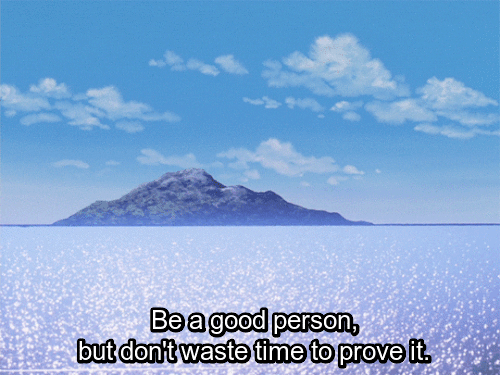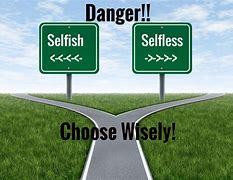#altruism
Note
Hi would it be okay if i asked you why you detest richard dawkins?? Cause i also hate him to pieces and would like to share some indulgent hatered of this fucking old ass shit man. Please go off
I mean, to go FULLY into it would require me to write an entire essay, and I just don't want to?
But the short version is
antitheism is cultural genocide and patently bullshit
focusing on genes rather than the whole organism in evolution is patently ridiculous when the minimum unit of evolution is the *population*, not the gene
in fact, when you realize the minimum unit is the population rather than the gene, you see that altruism and social behavior are very beneficial, even across species (see: symbiosis), and "selfishness" "red in tooth and claw" "law of the jungle" are just bullshit things some people made up to justify their crappy behavior (re: racism. their crappy behavior was racism.)
IQ and intelligence are smoke and mirrors we invented to convince ourselves we're more evolved than other animals (we're not, and every organisms has the intelligence it needs for its environment, adapted for its ecology, and that means that a diversity of intelligences is actually a good thing like diversity of anything is a good thing)
the man is a eugenecist and that speaks for itself
I hate him, and I hate that we live in a world where he is still alive and Stephen Jay Gould is dead, zichrono livracha
2K notes
·
View notes
Text

#begood#goodness#kindness#compassion#empathy#integrity#authenticity#selflessness#service#altruism#virtue#morality#ethics#character
566 notes
·
View notes
Text
Recent research found the cruelty of Zimbardo’s prison guards didn’t emerge spontaneously; some behaviour was encouraged. Some of the “prisoners” later admitted that they were pretending to be distressed.
Similarly, a study published in 2007 found that the 1964 incident that inspired the theory of the bystander effect was distorted. According to the paper, archive material shows far fewer people witnessed the incident than was reported at the time, and some people could only hear screams, without seeing the location of the incident. At least one person did try to intervene.
Recent research indicates that bystanders are much more likely to intervene than the theory suggests. A 2019 study of 219 violent situations from cities around the world caught on CCTV showed that bystanders – not just one, usually several – intervened to help victims 90% of the time.
The study also found that the more people were present, the more likely passers-by were to intervene. In the words of the study’s lead researcher, Richard Philpot: “It shows that people have a natural inclination to help when they see someone in need.”
The burgeoning field of “heroism studies” also questions the bystander effect. In a recent article for The Conversation, I described how acts of heroic altruism are common during terrorist attacks, when people often risk their own lives to help others.
Consider the following situation: you’re standing on a train platform. The person next to you suddenly faints and falls on to the track, unconscious. In the distance, you can see a train approaching. What would you do?
You might doubt whether you would act heroically. But don’t underestimate yourself. There is a strong possibility that, before you knew it, you would find yourself on down on the track, helping the person to safety. There is a growing awareness amongst researchers that heroism is natural and spontaneous, and by no means exceptional.
#psychology#altruism#Heroism Studies#bystander effect#Stanford prison experiment#Kitty Genovese#Philip Zimbardo
372 notes
·
View notes
Text
Random thought of the day:
Even altruists are selfish. Because altruists need to feel important to someone and they need to feel that someone depends on them. Why does an altruist give a coin to a poor man? To feel that even just for that moment he's being important to someone. He receives nothing concrete back, only gratitude. How good is all of this for the "altruist" ego? Enormously. Is being selfless just another form of selfishness?
At the end of the day there is no opposite of the word selfishness.
At the end of the day every human just wants to feel better with himself.
#books#my writing#poem#spilled ink#writeblr#writers on tumblr#writerscommunity#writing#thoughts#female writers#writers and poets#selfish#altruism#selfishness#day#thinking#serious post#seriously#spilled thoughts#my thougts#seriously though#think about it
98 notes
·
View notes
Text
True altruism is rare behavior in animals, but a new study by Penn State researchers has found that honey bees display this trait. Additionally, they found that an evolutionary battle of genetics may determine the parent from whom they inherit it.
For the study, published in the journal Molecular Ecology, the researchers examined the genetics behind "retinue" behavior in worker honey bees, who are always female. After the worker bees are exposed to the queen bee's pheromone, they deactivate their own ovaries, help spread the pheromone to the other worker bees, and tend to the queen and the eggs she produces.
This behavior is considered altruistic because it ultimately benefits the ability of the queen to produce offspring, while the worker bee remains sterile. For honey bees, the queen is typically the mother of all—or nearly all—the bees in the hive.
The researchers found that the genes that make worker bees more receptive to this pheromone—and therefore more likely to display the retinue behavior—can be passed down from either the mother or father bees. However, the genes only result in altruistic behavior when they are passed down from the mother.
Continue Reading.
131 notes
·
View notes
Text
The use of multiple women in families for reproduction is grounded in many religious patriarchal traditions. Men took an array of wives and concubines, not only for sex but also to reproduce. The reproductive use of multiple women was culturally and religiously legitimated as extended family, otherwise known as polygyny. In ancient Israel, for example, a large family, in particular a large number of sons, was regarded as a blessing from Yahweh. The desire for progeny was partially responsible for the system of multiple wives and concubinage. Surrogacy, especially family surrogacy, replicates this model, with the man inseminating a female family member in order to reproduce "his issue." As one commentator noted, we are really talking not only about surrogate mothers, but about "surrogate wives."
The potential for women's exploitation is not necessarily less when no money is involved and reproductive arrangements take place among family members. In fact, the family is the least safe place for women. More women are sexually abused, battered, and killed in the family context than anyplace else. Yet most of the literature on family surrogacy—sisters bearing children for sisters, for example—romanticizes the family as the foremost place of protection. However, unique affective "inducements" exist in familial contexts that do not exist elsewhere. Although there is no legal "coercion of contract" or perhaps no "inducement" of money, there could be the coercion of family ties, in which having a baby for a sister or another family member may be rationalized as the "greatest gift" one woman can give to another. In these family situations, sisterhood becomes surrogacy; that is, sister love is equated with one sister becoming pregnant for her sibling. Yet, rather than surrogacy enhancing sisterhood, is it not exploiting a sister to put her at risk physically and psychologically? As one woman wrote, "What kind of a society do we live in, that would condone women using other women in this way?"
Gifts often have an operative role and power in shaping family life, as in social life in general. In The Gift: Forms and Functions of Exchange in Archaic Societies, anthropologist Marcel Mauss contends that gifts fulfill certain obligations. These obligations vary, but in all instances, whether gifts are used to maintain social affection or to promote unity or loyalty within the group, they are experienced in some way as prescriptive and exacting. This is true on a cultural level, as Mauss has pointed out, but it is even more true on a family level, the context most often cited as the desirable site of altruistic reproductive exchanges.
Family opinion may not force a woman, in the sense of being out-rightly coercive, to become pregnant for another family member. Where family integration is strong, however, the nature of family opinion may be so engulfing that, for all practical purposes, it exacts a reproductive donation from a female source. When a surrogate arrangement is represented as generosity to a family member in need, the ideal of altruism binds the woman to the norms of family duty.
Within families, it may be considered selfish, uncaring, and even dishonorable for a woman to deprive a relative of eggs, fetal tissue, or her gestating abilities. The category of altruism itself is broadened in family contexts to include all sorts of nontraditional reproductive duties that would be frowned on if women did these for money. Within families, it may be considered selfish for an infertile woman to deprive her husband of children by not allowing the use of another female family member, especially because the arrangements will be kept within the family.
It is also likely that those with less power in the family will be expected to be more altruistic. Indeed, their altruism may be outrightly coerced, as happened to Alejandra Muñoz. Muñoz, a poor, illiterate Mexican woman, was brought across the U.S. border illegally to bear a child for relatives at the urging of family members. Told by relatives that if she became pregnant the embryo would be flushed out and transferred to the womb of her cousin, Muñoz was deceived about her reproductive role. When this embryo transfer did not happen, Muñoz vowed to end the pregnancy and was thwarted by family members who kept her under house confinement until the delivery. When she fought to keep her child, she was threatened with exposure as an illegal alien. In family surrogate arrangements, relatives do the brokering. Family members are inevitably used as essential intermediaries and gatekeepers between the woman and the would-be recipients of a child.
And women are still negotiated by family agents, whether for money or for free. We should also not assume that, because surrogate arrangements occur within the family context, no money changes hands. Increasingly many relatives accept a "return gift" for their services. In the realm of organ donations, by comparison, Dr. James Light of the Washington (D.C.) Hospital Center, one of the nation's largest transplant centers, estimates that some economic benefit accrues to 15 to 20 percent of living organ donors who give to a relative.
-Janice G. Raymond, Women as Wombs
26 notes
·
View notes
Text
I feel like the "no one owes anyone anything and no one is morally obligated to do anything for anyone or be considerate or help anyone and we're all just a bunch of animals who can't be expected to do anything other than ensure our own survival and people expecting anything from one another is childish and cringe" attitude is explicitly anti-human tbh.
Like this is full fledged misanthropy and apathy covered up with an edgy "fuck yeah, fuck everyone, I'm a strong independent lone wolf" attitude. The fact that it is presented as the "mature" alternative to "entitlement" (read: the view that people should look out for each other and that people deserve things) is especially wild. Like, no, thinking that if other people take issue with your behavior then that's a "them problem" is not mature or based. Neither is thinking food, shelter, or medical care are not human rights. Neither is deliberately upsetting people you don't like just to upset them. Neither is turning away people in need, who you are fully able to help at little cost to yourself, because you don't feel like it. Neither is trying to justify any form of morally dropping the ball with "I don't owe" when what you really mean is simply "I'd rather not."
You believe that people don't have any ethical obligations to one another beyond the most basic, "don't rape or murder" level tenets because you're a selfish and self-centered person who doesn't want to take responsibility for how their choices impact other people and doesn't want to live in a genuinely pro-social world, not because you're a strong willed stoic survivor who's earned the right to be a selfish ass because you've worked hard for it or something. Your ilk are the people who fuck in public restroom stalls, who blast music on the bus with no headphones, who ghost friends because they bore you, who leave garbage on the floor because "someone else will get it," who refuse to assist anyone whose needs are remotely inconvenient, who express profound glee in response to "offending" (read: bullying) others. You view any and all altruistic acts performed by yourself or others, no matter how small, insignificant, and/or effortless, as gracious charity, as going above and beyond, something exceptional that recipients should be infinitely grateful for, because, of course, said recipients are owed nothing, deserve nothing, and are not entitled to kindness from anyone. You do not see everyday altruism as the basic moral duty that it is, as the backbone of healthy human interaction, something to be expected, equally as unworthy of special praise or recognition as abstaining from rape or murder. Your world is aggressive, selfish, cold, petty, individualistic and small, and yet you claim there is nothing wrong with it, that it is a good world, that anyone who objects to it is simply inferior to you in some way, too weak, too infantile, too, without any recognition of the irony, selfish. And that makes sense, in a way. Why would you see such a world as bad when you share so much in common with it?
#rant#ramble#venting#misanthropy#altruism#humanism#morality#entitlement#conservativism#leftism#like normally I associate this kind of thinking with hardcore conservatives#but lately I've been seeing it getting more popular on the left#and it's genuinely frightening because this the kind of thinking is deeply damaging to society#luna's
79 notes
·
View notes
Text
So just then I was re-watching Disney's underrated "Dinosaur" (2000), and there happened to be this scene where they've reached the watering hole just to find out it dried up, shortly after, Aladar found a way to get them water with Baylene's help.

Without hesitation, he called out to the rest of the herd.

and unfortunately, had to deal with a pretty rough, unexpected backlash when he tried containing their reaction, and basically got flooded.

That was when someone called him "stupid"..? I couldn't get where that came from so, I asked, and was answered with:
" He should've waited for the older ones to be done drinking first before calling others, to avoid this kind of situation."
So, what makes him stupid is basically lacking your knowledge ..?
If we shall take a look back on his life ..
Aladar was the unchallengeable creature on his island, meaning that he never really had to experience opposition, that along with the way he was raised, never fed the "potential threat" he could've become.

° °
Though it's also obvious that before the catastrophic meteor shower, he never went through scarcity of resources, which would lead us to remember that even when he did, it'd only shown his true nature;

(He was the last one digging, though he wasn't any less thirsty than the rest, but look at his proud smile! and him stepping back for them to start drinking first)
He'd proven to be an altruist..

time and time again.
Hence, clashing against self-seeking behavior was rather perplexing to him.. (not like he knows what that even is..)

° °
Knowing that already should naturally interpret that he wasn't "stupid", but inexperienced..
If we'll be setting that way of ignorant thinking, we'd easily ignore his motives & assume that Aladar staying behind with the "weak" was because he's an idiot. (Deliberately ignoring that it was out of benevolence)

And Bruton's death was an illogicality.. not at all sacrificial or noble

° °
The issue with setting that behavior irl is ignoring facts & passing judgment without taking the other side's morals, characteristics, knowledge, and motives into account. which wouldn't only make them feel misunderstood, but makes you terribly misinformed!
You managed to know everything but somehow ended up knowing nothing. How unfortunate.
#dinosaur#dinosaur 2000#underrated disney#Behavioral analysis#character analysis#altruism#Aladar#disney's dinosaur#disney#dinosaur movie#movie analysis#film analysis#animated movies#movies#i love this movie so much#love this movie#altruism in movies#selfless#selfless characters#judgemental#character judgement#disney underrated gems#disney's animal kingdom#disney's underrated gems#dinosaur film#2000s#animation#disnerd#Disnerds#disney movie review
53 notes
·
View notes
Text
"If you don't receive, you can no longer give. If you give too much you take from your own substance, and then something in you goes down, descends to a lower level, so that finally, behind the virtue of the giving, one appears as an animal of prey." — C.G. Jung
26 notes
·
View notes
Text
Altruism
What is it about kindness that steals my very breath. I think its in the small moments of charity and care.
I watch the people in the world, they move so quickly, some never say a word. How many lonely souls have reached out with hope. How many felt there hand drop and and have completely given up. Have felt no will to cope.
Some are loud and brash in their aid, there voices reaching those so far beneath the world, the ones left behind in a lonely crippled shrine. An alter for the tired. A dumping ground of sorrow. But a song fills up that space. A melody of possibility. A chance to climb out of that dingy hole. To feel the sun. To feel whole.
There are those that are silent in their good work, there is no great symphony that calls to wandering figures in the night, but there is a gentle presence in the empathy of their eyes. A moment is all it takes, two people. Two storeys. Two hearts is all you hear, beating in the quite moments of understanding and it becomes so clear.
Conection is what we crave, we want to feel seen. But street coners are avoided, we turn and look away. Never meeting that stare of hopless drowning grey. Its the guilt that is pushed down, we don't want to feel it. so it is ignored , like those haunting figures, on the hard grey curb.
Its all these facets that make up what we call care, willing to hold out a becaon in the dark or seeing that lost person and not knowing where to start. You dont need to know someone to wish them all happiness and joy. Its what makes us human and that is something i will always employ.
73 notes
·
View notes
Text

So, not only is his work shoddy and inept, but he insists that everyone forever owes him for this defective work.
Imagine a mechanic who crashes into your car, without your consent tries to unsuccessfully fix it, then makes you show your gratitude, while also sending out a bill to every one of your relatives.
From genocide to that foreskin thing, the bible is full of cases of bizarre quid pro quo, where god wants something in exchange for his help. Not only can a perfect god not have either needs or wants, but it means the god who can do anything can't be altruistic.
#christianity#bible#altruism#religion#sin#died for your sins#quid pro quo#original sin#religion is a mental illness
100 notes
·
View notes
Text

#wholesome#wholesome memes#kindness#altruism#mr rodgers#steve irwin#the crocodile hunter#bob ross#positivepostoffice
14 notes
·
View notes
Text

but you wouldn't, for me
#foryouiwould#love#devotion#dedication#commitment#sacrifice#altruism#selflessness#kindness#compassion#empathy#loyality#support#encouragement#friendship#romance#family#community#humanity#self-growth#healing#transformation#inspiration#motivation
30 notes
·
View notes
Text
Care amongst Neanderthals also implies a sophisticated level of knowledge and planning. High rates of healing and low rates of infection argue for planned care practices for the injured. Bitter-tasting plants with no nutritional value found in dental calculus provide evidence for possible medical consumption, for example. Poplar in the dental calculus of a Neanderthal with a dental abscess from El Sidrón may have been used as a painkiller as it contains salicylic acid (which acts as a painkiller in aspirin). Ochre may also have been used as an antiseptic and tar may also have been chewed for the same reason, as well as in maintaining the teeth. Toothpicks were also used, in the case of an individual from Cova Foradà in Spain to apparently attempt to treat periodontal disease. Medicinal knowledge is likely to have been handed down over generations and culturally variable in different regions. Whilst particular practices of care tend to be culturally specific, a knowledgeable, organised and caring response is typical from archaic humans onwards. Though there is no direct evidence, we reasonably assume that birth assistance was widely practised – Neanderthal babies were born with a modern human pattern of head rotation at birth, demanding assistance, and birth assistance has even been recorded in bonobos.
Penny Spikins, Hidden Depths: The Origins of Human Connection
1K notes
·
View notes
Text

Between Narcissism and Altruism
Stephen Jay Morris
3/28/2024
©Scientific Morality
The voices in my head clutter up the canyons of my mind. “Don’t be a victim!” “Man up!” “Do it yourself!” “Get off my lawn!” “What are you looking at?” “Be a man!” “Ring, ring on the telephone!” “Monday is the deadline!” “Don’t be so selfish!” “You’ve got to think about yourself sometimes!” “Oh! My Bob!” Shut the fuck up! SHUT UP!
I do care. I really do. When women and children are starving to death, being maimed, and killed by weapons of war, and you express that emotion, most conservatives say, “Why don’t you adopt them and have them sleep in your garage!” Most conservatives are narcissists. Certain political ideologies attract those with personality disorders. Sociopaths make personal liberty into malignant selfishness. That sentiment ranges from libertarians to Paleo-conservatives: Me first, my family second, and my country on third base.
Oh, those on the left, on the other hand, are neurotic, clinically depressed, anal retentive, and emotionally wrecked. At one point, some smart-ass yells out, “The whole world is fucked up!” To which I reply, “No. Just you.”
You know what is acceptable? To hate people and despise the world. But if you declare, “I hate the Irish!”—Watch out! You’re a bigot! If you hate the world, you are seen as a prophet from God. Is it acceptable to hate all except for one group of people? If you hate all countries, then you are an Anarchist terrorist. However, if you love America, but hate all other countries, you are a Patriot!
So, let’s review: Collective hatred is just fine. Specific hatred for a particular race is unacceptable. Why is that? I’ll tell you, boobie: On the left, there is the belief of international solidarity. On the right, it’s tribalism. Stick to your own kind.
Now the main problem with the right is this gigantic contradiction: Individualism versus National pride. You remember that lunatic, Ayn Rand? Not only was she an atheist, but she believed that the rights of the individual triumphed over loyalty to their country. AKA: dying for your country is a sucker’s game. So, do you put your personal liberty over loyalty to your country? According to Ayn Rand, you put yourself over the state.
Where do I stand politically? Does it matter? I realized, over the years, that I am not special. I try my best to be a good person. Now, in America, selfish people outnumber the good. You need a magnifying glass to find them. Morality does not come from a compass; it comes from the conjunction of your left brain and your right brain. Once you fine tune it, then you are in business.
When I was young, my priority was to save the Vietnamese people from the American bombers destroying their homeland. Every night, the news gave up the death tolls while we ate our T.V. dinners. So, we protested and got arrested. It was better than going to the high school football game! I think and feel that we did the right thing.
Now, Israel’s Likud Party is running a near six-month campaign of committing genocide on innocent Palestinian men, women, and children in Gaza. What can I do? Protest? Write a letter to my congressman? Bomb a building? I don’t care if you think this is a major copout, but I am tired, I suffer from comorbidity ailments, and I have chronic pain in various parts of my body. As such, I do nothing. The young people are managing just fine without me.
If I knew I was going to live this long, I’d have taken better care of myself. I am 70.
#stephenjaymorris#poets on tumblr#anarchism#poets of tumblr#anarchopunk#anarchocommunism#baby boomers#self love#narcissistic personality disorder#altruism
12 notes
·
View notes
Text
Altruism has become part of the vocabulary of reproductive technologies and contracts. We hear about altruistic surrogacy; for example, a sister becomes pregnant for another sister with no money involved. A mother becomes pregnant for a daughter "out of love." We even hear that women who are paid "surrogates" conceive, not mainly for the money, but primarily to give help to an infertile couple. We hear about egg donation. A woman undergoing a hysterectomy reasons that since she has no future use for her eggs, she may as well donate them to an in vitro fertilization program where they will aid an infertile woman. We hear about fetal tissue. A woman becomes pregnant with the intent of aborting for a family member who has Parkinson's disease and needs such tissue. We also hear about medically mandated, court-ordered, and postmortem cesarian sections, which are often rationalized as giving women a chance to express their altruism even in death—or just prior to it, knowing that to give birth may cause them to die.
Altruism is so accepted as a positive personal value that few question the way it has been used to legitimate many new reproductive technologies. We do not hear about the family pressure exerted on some women to become pregnant for a sister or cousin unless, like other surrogacy cases, the situation lands in court. We do not hear about the surrogate brokers who go to great lengths to soften their entrepreneurial image by portraying their hired "surrogates" as "special ladies" who really become pregnant for the joy of giving life to others. We do not hear about the numbers of egg donations used for embryo experimentation and genetic engineering and to further the research ambitions of reproductive scientists and technologists. We do not hear about the international traffic in fetal tissue or about the ways in which the procurement of fetal tissue for medical research adds a burden on women already facing a difficult abortion decision. And we hear little about court-ordered cesarians where the underlying norm is that the woman owes the fetus life. We do not hear about how women's altruism has become obligatory.
New reproductive technologies and arrangements are constantly portrayed in a personal context—as hope for the infertile or as resolving acute medical conditions such as Parkinson's disease or Huntingtons chorea. Moreover, the discourse of altruism is appropriated by reproductive scientists to shield their objectives, interests, and ambitions; instead, the alleged miraculous technology is portrayed as bestowing a gift only dreamed of—a child, a cure, a self. Supposedly, selfless scientists engender a selfless science and technology, all for the benefit of individuals in desperate need of medical help. The alibi of altruism makes the technology beneficent, and lots more becomes acceptable.
-Janice G. Raymond, Women as Wombs
18 notes
·
View notes